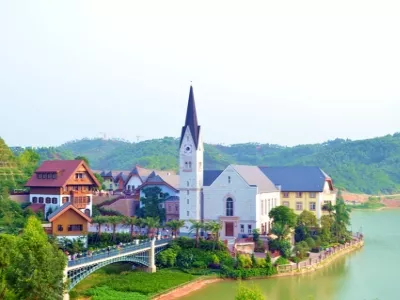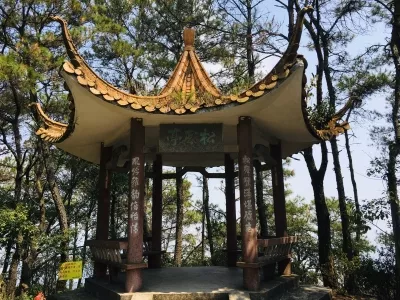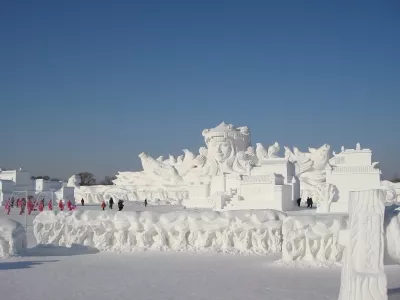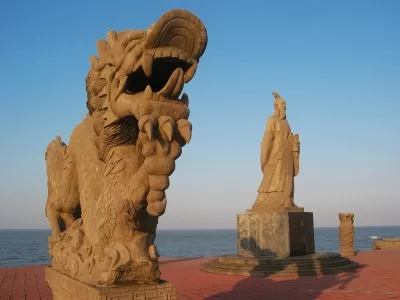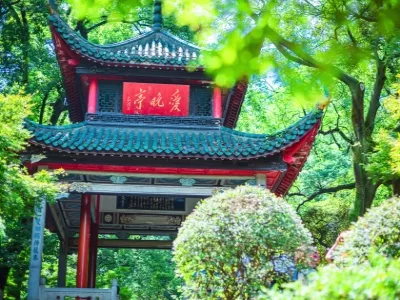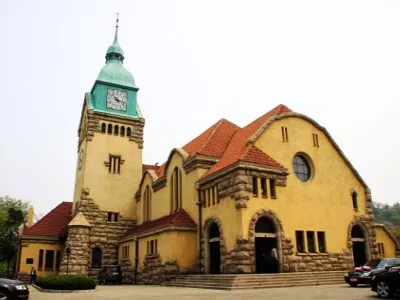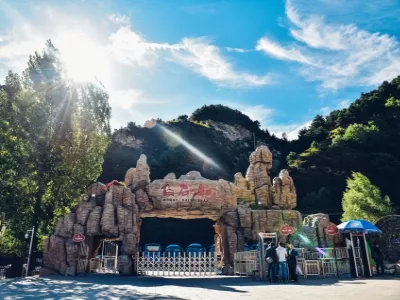Jiangmen lies in south-central Guangdong Province where the West River meets its tributary, the Peng River. With Mount Yandun to the south and Mount Penglai across the river, the landscape resembles a gateway - hence the name "Jiangmen" meaning "River Gate". It is also known as "Four Counties" or "Five Counties".
Jiangmen City administers 3 districts - Pengjiang, Jianghai, and Xinhui - and oversees 4 county-level cities - Taishan, Kaiping, Enping, and Heshan. Xinhui, Taishan, Kaiping, and Enping are collectively called "Four Counties", while adding Heshan forms the "Five Counties". These five counties represent the ancestral hometown for many overseas Chinese, earning Jiangmen the title "No.1 Hometown of Overseas Chinese in China".
Walk along centuries-old shikumen lanes. Explore ancestral halls of prominent émigré families. Sample Teochew cuisine. In Jiangmen, reconnect with the roots of Chinese communities worldwide.
Consumption level
Typing…History
Archaeological evidence confirms human activity in Lianyungang's ancient Mount Qushan and present-day Mount Jinping area as early as 10,000 years ago. In 1959 and 1978, the oldest Paleolithic sites in southeast China were discovered at Erjian and Daxian Village with clear stratigraphic layers. Mount Jinping has 19 Neolithic sites, with Erjian being one of China's earliest farming areas.
The 20-meter long, 10-meter wide "General Cliff Painting" discovered in 1979 was appraised by the State Administration of Cultural Heritage as "an extremely important cultural relic and rare major discovery, the earliest 'book' in China."
The Donghan era art treasure "Kongwang Mountain Grottoes Statues" are the earliest Buddhist grotto statues in China, 100-200 years earlier than the Dunhuang Grottoes, and protected at the national level.
The area is also steeped in history, with attractions related to Confucius' sea gazing, Emperor Qin's inspections, and famous poets and officials like Tao Yuanming, Li Bai, Su Dongpo, Shen Kuo, Li Qingzhao, Wu Cheng'en, Li Ruzhen, Wu Jingzi, Lin Zexu, Zhu Ziqing and more.
Best Travel Time
There will be typhoons and rainstorm in Jiangmen in summer. April September is the flood season, and July September is the frequent typhoon season. The best travel time is spring and autumn. March May is the best time to visit Kaiping to see rapeseed flowers and watchtowers. October is the harvest season and the best time to watch the watchtowers in Kaiping.Dressing Guidelines
Jiangmen Clothing Recommendations
Jiangmen has a warm, wet, rainy subtropical climate with no snow. Average annual temperatures are around 22°C, with summer highs of 38°C. Wear shorts, short sleeves and sun protection in the hot summers.
April through September sees heavy rainfall, so carry an umbrella when going out.
Winter lows can dip to 5°C. Pack warm coats and jackets for winter outdoor comfort.
With its subtropical climate, lightweight clothing works well most of the year in Jiangmen. However, the rainy season calls for raincoats and umbrellas. The cooler months require extra layers like sweaters and jackets. Checking forecasts and dressing accordingly will ensure you stay comfortable experiencing Jiangmen's climatic diversity.
Medical treatment
Here is some helpful information about medical care in Shenzhen, China for an English travel website:Medical Care in ShenzhenShenzhen has several top-rated Tier 3 hospitals and many conveniently located 24-hour pharmacies for purchasing medication or over-the-counter remedies. Medical care and prescriptions are readily accessible for travelers.Some major hospitals in Shenzhen include: Shenzhen People's Hospital Outpatient and Emergency Department 1Phone: 0755-82238441Shenzhen People's Hospital Outpatient and Emergency Department 2Phone: 0755-25531387Shenzhen Traditional Chinese Medicine Hospital Emergency Department Phone: 0755-83334055With reputable hospitals, open pharmacies, and English-speaking staff in major facilities, travelers can feel at ease getting treatment if the need arises while visiting Shenzhen. Be sure to travel with proper health insurance and documentation to facilitate care. Taking basic precautions will allow you to explore this modern metropolis without worrying about medical emergencies.Safety considerations
When at crowded places like train stations, bus terminals, and metro stations, keep a close eye on your belongings to prevent theft. Areas with high tourist traffic like Tiananmen Square also attract scammers, so tourists should be wary of unlicensed guides demanding money upfront. Avoid handing over any cash to solicitations on the street. Use registered taxi companies like the red Beijing taxis whenever possible. Keep valuables secured and hidden, avoid carrying large amounts of cash, and be alert in public transportation hubs and tourist sites. When needing assistance, go to authorized help points like the Beijing Tourist Information booths rather than individuals roaming the streets. Beijing is a generally safe city if simple precautions are taken. Report any incidents or suspicious activities immediately to the nearest police officer. They can also provide directions and other help. Enjoy sightseeing, but remain aware of the surroundings.



